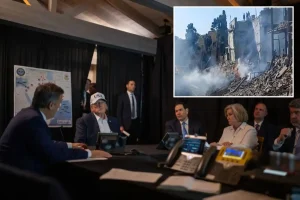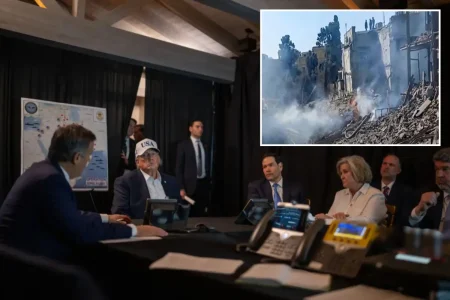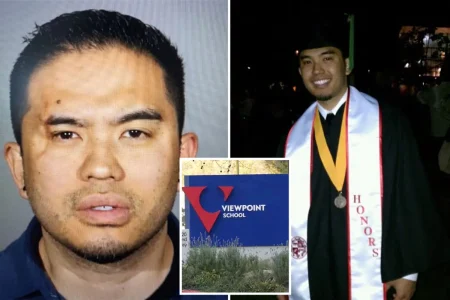Andriy Yermak Under Scrutiny: Implications for Ukraine’s Peace Process and Political Stability
The recent investigation into Andriy Yermak, the influential chief of staff to Ukrainian President Volodymyr Zelensky, has emerged as a potentially destabilizing force in both Ukraine’s domestic politics and its international diplomacy efforts. As one of President Zelensky’s closest and most trusted advisors, Yermak has been instrumental in shaping Ukraine’s response to Russia’s full-scale invasion and in managing the country’s relationships with Western allies. The scrutiny he now faces comes at a particularly delicate moment, with U.S.-led peace negotiations ongoing and Ukraine’s political landscape already strained by more than two years of war. This development threatens to complicate Ukraine’s position at the negotiating table and could introduce additional instability into a political system that has remained remarkably unified since the Russian invasion began.
The timing of this investigation is especially problematic for Ukraine’s diplomatic endeavors. With peace talks at a critical juncture, any suggestion of political turmoil within Zelensky’s inner circle risks undermining Ukraine’s negotiating position. Yermak has been a central figure in diplomatic engagements with Western partners, particularly in cultivating the vital relationship with the United States that has provided Ukraine with essential military and financial support. His personal connections with key international figures have helped secure crucial aid packages and maintain international attention on Ukraine’s plight. The investigation threatens to disrupt these carefully cultivated relationships at a time when Ukraine can ill afford any weakening of international support or questioning of its governmental stability.
Within Ukraine’s political ecosystem, the scrutiny of Yermak touches on deeper tensions regarding governance during wartime. Some view Yermak as having accumulated excessive power within the presidential administration, creating what critics describe as a bottleneck in decision-making that has occasionally hindered Ukraine’s war effort. Others defend his role as necessary centralization during an existential crisis, arguing that his management has enabled Zelensky to maintain political control while focusing on the international dimensions of the conflict. The investigation has reignited these debates about power distribution within Ukraine’s government and raised questions about transparency and accountability even during wartime. These internal disagreements, previously muted in the interest of national unity, are now finding more public expression, potentially fracturing the political consensus that has been a cornerstone of Ukraine’s resistance.
The investigation also reflects broader challenges facing Ukraine’s reform agenda amid the pressures of war. Despite the conflict, Ukraine has continued to pursue anti-corruption measures and governance reforms as part of its European Union accession process and to maintain Western support. The scrutiny of a figure as senior as Yermak demonstrates that these accountability mechanisms remain active even in wartime, which supporters see as evidence of Ukraine’s democratic resilience. However, critics worry that the timing could be exploited by Russia in its information warfare campaigns. Moscow has consistently sought to portray Ukraine’s government as corrupt and unstable, and the investigation into one of Zelensky’s closest allies provides material that could be weaponized in Russian propaganda narratives aimed at weakening Western resolve to support Ukraine.
For ordinary Ukrainians, already enduring the hardships of a prolonged war, the political uncertainty introduced by this investigation adds another layer of concern. Public trust in government institutions is a vital resource during national crises, and any suggestion of impropriety at the highest levels of power risks eroding this trust precisely when it is most needed. The Ukrainian public has shown remarkable resilience and unity since the invasion began, but continued political stability depends on maintaining confidence that leadership remains focused on national defense rather than internal power struggles. The way this investigation is handled will significantly influence whether it is perceived as a healthy demonstration of democratic accountability or as a destabilizing political maneuver that benefits only Ukraine’s enemies.
Looking ahead, the resolution of this matter will have far-reaching implications for Ukraine’s war effort, political development, and international standing. If handled transparently and according to established legal procedures, it could ultimately strengthen Ukraine’s democratic credentials and reinforce the message that the country is committed to good governance even under the most challenging circumstances. However, a prolonged, politically charged investigation risks creating divisions that Ukraine can ill afford and distracting from the paramount task of national defense. The international community, particularly Ukraine’s Western allies, will be watching closely to see whether this development represents a temporary complication or a more significant shift in Ukraine’s political landscape that could affect their ongoing support for the country’s defense and reconstruction.









